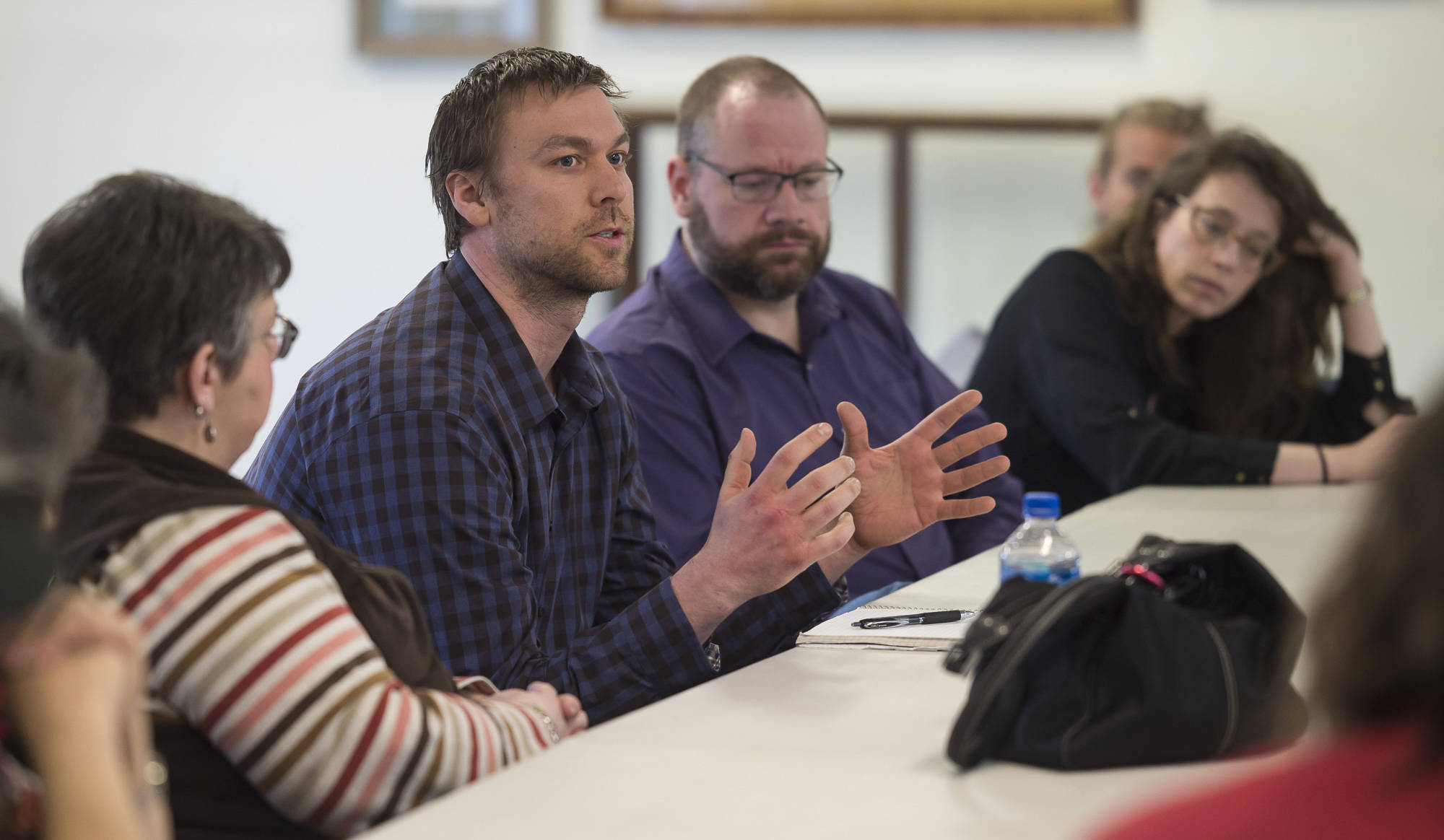The Juneau Coalition on Housing and Homelessness wants to broaden the range of organizations that can apply for certain federal funding.
The coalition took a step in that direction as it approved sending a letter to Gov. Bill Walker’s office requesting that Juneau be considered a “medically underserved area” during a meeting at the Gruening Park recreation center Thursday.
According to the Health Resources &Services Administration (HRSA) website, a “medically underserved area” is defined as a “a shortage of primary care health services for residents.” This designation, if approved, would allow multiple entities to apply for federal funding under HRSA. HRSA offers funding for organizations in these areas under this designation.
The HRSA data website also lists 37 areas in Alaska, including Anchorage and Fairbanks, which qualify as a “medically underserved area.”
“It is important because it helps us better be able to sustain the clinic (at Housing First) going forward,” Doug Harris, Chief Integrated Services Officer at Juneau Alliance For Mental Health Inc. (JAMHI), said. Housing First provides housing and care for Juneau residents and focuses on helping the homeless population.
According to the HRSA website, a Federal Qualified Health Centers (FQHC) are “community-based health care providers that receive funds from the HRSA Health Center Program to provide primary care services in underserved areas.” These centers have requirements they must follow including providing care on a sliding fee scale based on ability to pay and operating under a governing board that includes patients.
With the designation, programs like JAMHI would be able to request the funding. Harris said the grant funding JAMHI has right now will last for 18 more months.
Part of the reason for wanting more allowing more entities to get funding is that Alaska has the highest cost per capita in the U.S. for health care.
Currently, only Front Street Community Health Center, under Southeast Alaska Regional Health Consortium (SEARHC) — is able to apply for the incremental funding as it qualifies as a FQHC. The clinic requests funding every three years through HRSA — which is available to any entity. The designation the Coalition is requesting for Juneau would simply allow other entities — that qualify under HRSA and FQHC qualifications — to apply for the funding in between the three year funding gap.
Mark Walker, Division Director at SEARHC, said he feared this could add competition between entities in the area if this designation was approved.
“The fact of the matter is there is a fixed amount in the (funding) pie to go around,” Walker said.
However, Mariya Lovishchuk, executive director at Glory Hole homeless shelter, said she believes it simply opens the doors for other entities to apply and receive funding to help those in need.
“There is still a gap in services,” she said. “There is still additional needs. This makes the pie bigger.”
Walker was unsure if it would be helpful.
“I think the ability for one entity to provide comprehensive care would be compromised,” Walker said.
There is no timetable on when the coalition would know if the city receives the designation.
• Contact reporter Gregory Philson at gphilson@juneauempire.com or call at 523-2265. Follow him on Twitter at @GTPhilson.

